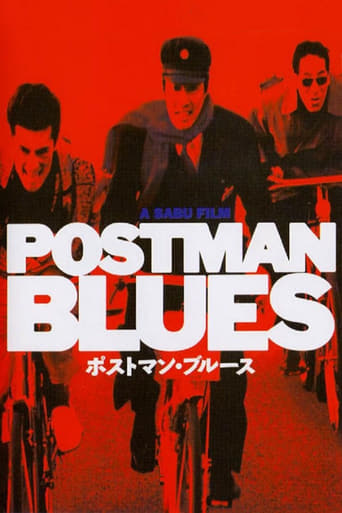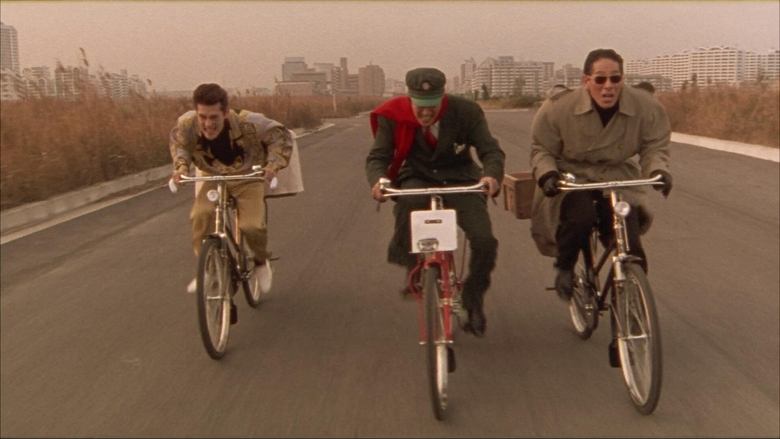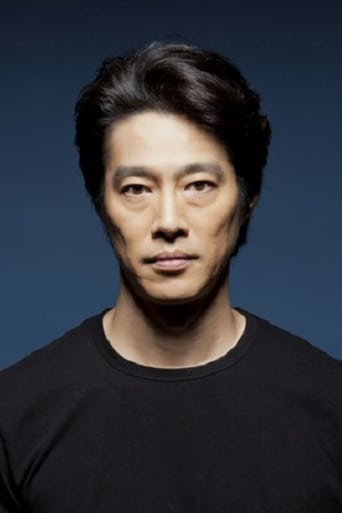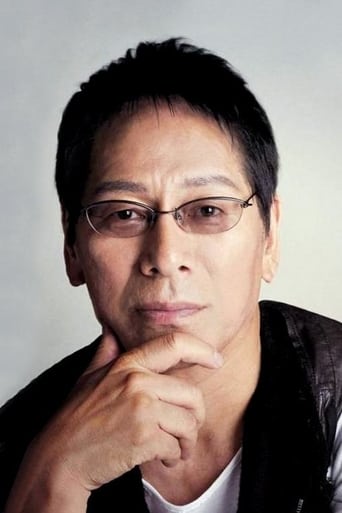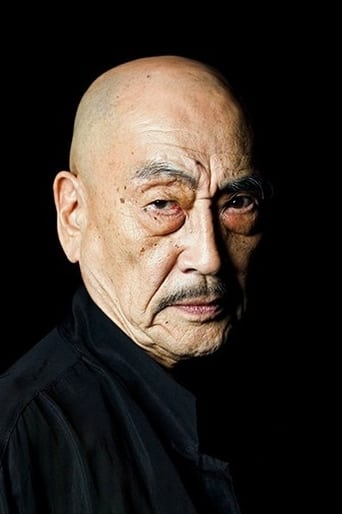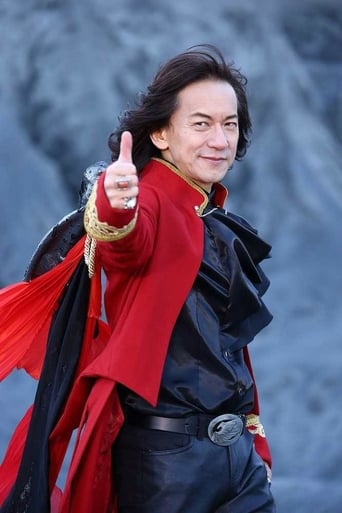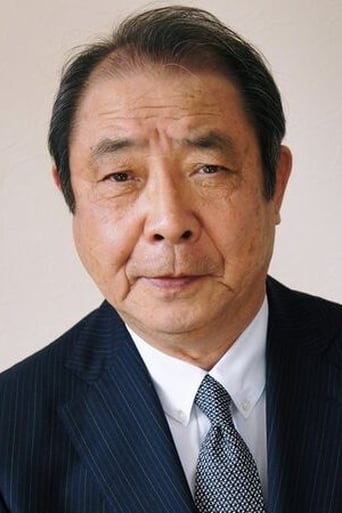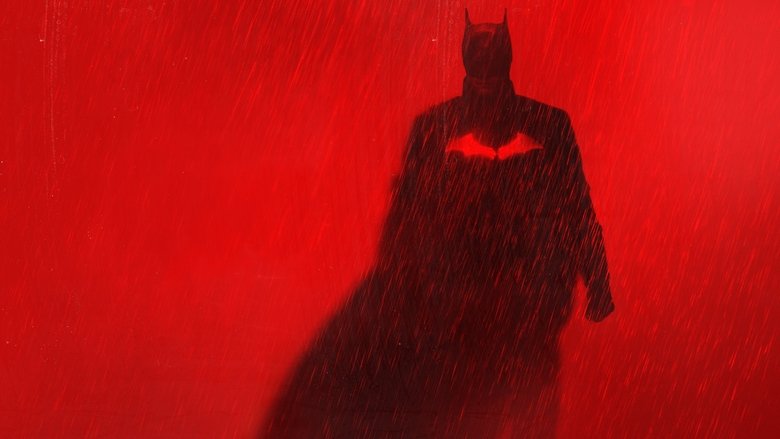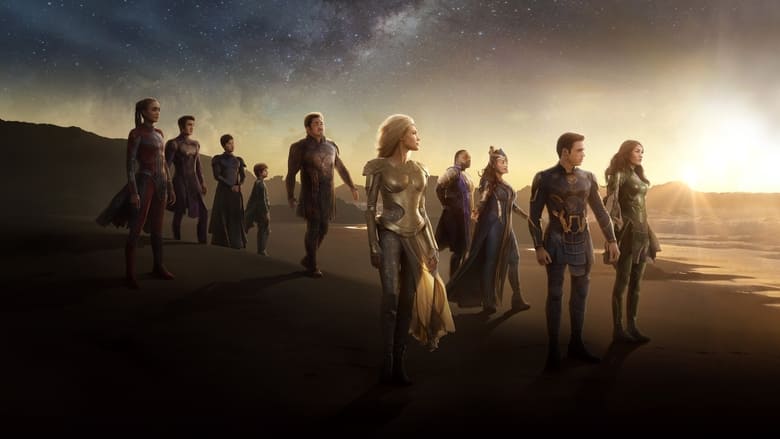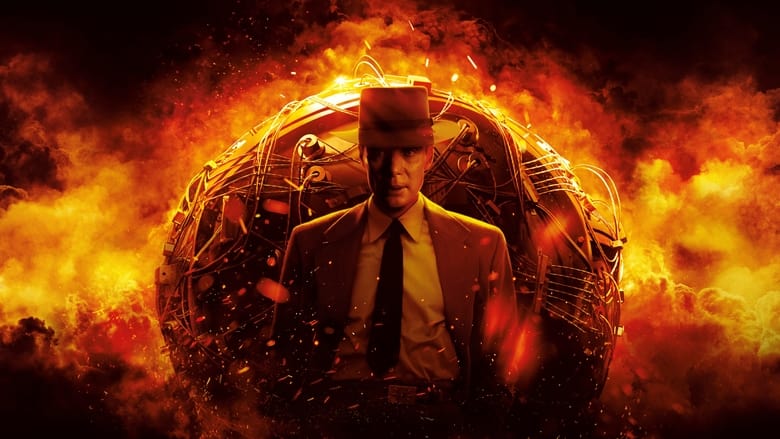Sawaki is a postman who's not quite thrilled about his boring way of life. But his life is about to change when he delivers mail to his old schoolmate Noguchi, who's now a member of the Yakuza, the Japanese Mafia, and just finished cutting his little finger off.


Similar titles
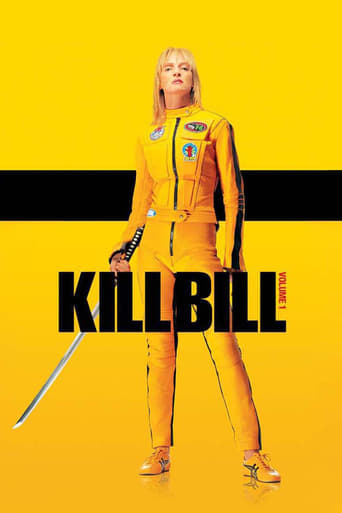
Reviews
SABU's second film perhaps doesn't learn from some of the naivety of his debut. 'Dangan Ranna' starts off with an interesting premise, though as the film gets towards its conclusion, it starts to fall off. Like 'Monday' coming after it, the idea is a satire of modern life, though by 'Monday', SABU had matured into a more rounded filmmaker, whereas with this 1997 effort, there were still some areas that required some work. Sawaki is a postman, hence the title, bored of his life and his role as society's servant. Working late, he unwittingly stumbles across his former classmate, now yakuza, Noguchi as he performs that age- old yakuza ritual to atone for his errors. Noguchi tells Sawaki of how his yakuza lifestyle gives him daily excitement, which Sawaki has long since lost. Taking heed of Noguchi's words, Sawaki then drinks himself into a drunken stupor, tearing up undelivered letters, stealing any money he finds and reading people's most personal letters. Though unbeknownst to him, Noguchi snuck a brick of naughty powder into his postman bag, causing the police to follow him, believing him to be a drug runner. It's from this point that Sawaki's life gets a little daily excitement back in it. The first half an hour is relatively dark with brief moments of laughter, creating the negative portrait of Sawaki's life and the role of the postman in society. It's all very bleak. Though when the police become involved, with their over-the-top and unfounded suspicions regarding his dull life, the film has a more mainstream feel, part- love story, part foolish comedy. It's here, much like 'Dangan Ranna', with the introduction of further characters that the film starts to become a little confused and, at times, a little silly. I always find that the funniest films are those that are largely serious, though throw in light moments here and there to show that they're not taking themselves too seriously. 'Dangan Ranna' and 'Monday' are successful in being humorous in this way. Though in 'Postman Blues' there are more deliberate attempts to be funny, and as a result, the film is less funny overall, in the way that Kitano's 'Hana-bi' is more humorous than his comedy 'Getting Any?''Postman Blues', therefore, isn't quite as charming as SABU's other early efforts, though it clearly tries to be. His love interest in cancer patient, Sayoko, has moments, but also feels a bit clichéd with musical montages. The bumbling police and their over- imagination as to Sawaki's life, are a satire of modern society's jumping to conclusions without any evidence, though perhaps become a little too much, as criminologists are brought in to suggest sexual perversions and a possible history of murder. Their actions then start to become inexplicable towards the end. Perhaps I'm being a little down on 'Postman Blues' though. Again, this is a film based on good ideas to explore, with moments of sadness about how the modern world works, as well as the odd funny moment and references to 'Leon' and 'Chungking Express'. 'Postman Blues' shows a filmmaker with ideas galore, though maybe needing a little more tightening in certain areas. From what I've seen of his subsequent works, lucky SABU is a director that can deliver. politic1983.blogspot.co.uk
This movie features an annoyed postman, searching for excitement, a bunch of stupid and clueless policeman, thinking they are super-brains, a chopped of finger going on travel, a hit man tournament with a Japanese Léon, a cute romance with a cancer suffering girl and last but not least one of the best police chases of movie history... on BICYCLES!!!"Postman-Blues" is a crossfire of genres. It is a hit-man-movie-parody, a slapstick action-comedy and a romance.The movie has wonderful, absurd dialogs. The postman talking with a hit man on the roof of a hospital (dialog from recollection and in the original much better): Hit-man: "Girls like postmen, I should have become one as well." Postman: "And what are you?" Hit-man: "A hit-man. But I am suffering from cancer. The small killers are killing the big killer." [...] Postman: "How often do you kill in a year?" Hit-man: "2 or 3 times." Postman: "What? That is not often..." Hit-man: "Times are heavy. There are over 800 killers in this country." And all that with a face, as if they would talk about the weather :D.Or when the policeman come up with their abstruse theories, and the others all nodding: "Yes, that sounds plausible." It is SO funny!While the music perfectly accentuates what is happening, the camera always comes with shots that keeps us interested and curious. Furthermore this movie features a cast which includes so many cool Japanese male-actors, it's amazing. At that time many of them still fresh, now all acclaimed actors in the business.And all of it is coalesced into a story full of ideas, which even somehow makes sense! Unbelievable and simply brilliant!And the end :)... See for yourself!
There is no doubt in my mind that Japan is home to the most creative cinema in the world today, even if it doesn't have quite the same mix of artistic and technical virtuosity that Korean cinema has been providing of late. Many of the most interesting Japanese films are very low budget, squeezed out quickly by a small cast and crew and often not even getting a theatrical release in their home country. But they have been drawing increasing attention from the rest of the world, eager to lap up the freshness and creativity so often lacking in other regions' cinema. There are certain directors that have practically become household names - Takeshi Kitano, Takashi Miike and Shinya Tsukamato being the "Big 3" I guess (with Ryuhei Kitamura coming up fast). One director that has yet to achieve the kind of mainstream-cult success that he deserves is SABU (real name Hiroyuki Tanaka) - possibly because his films generally steer away from the kind of shocking scenes that gave many of his contemporaries their foot in the door.SABU's films share much in common with Takashi Miike's films (in fact he may be most recognised as the detective in Miike's ICHI THE KILLER), in that they often revolve around the Yakuza and use their plots as a rough framework on which to build quirky characters and whimsical, sometimes surreal, scenes. But he has his own particular style that can be seen throughout his films - in particular he seems enamoured with people running - generally chasing or being chased, and most if not all of his films seem to revolve around such moments. Sometimes the "running" might be in a car ("Hard Luck Hero" and, I'm guessing by the name, "Drive"), whilst in Postman Blues it is mostly on bicycles.The plot of the film is difficult to explain, as it's far more about the moments and the characters it throws up than it is about the narrative. This is true of most of Sabu's films I guess, which might explain why he often has trouble giving them a satisfying ending. Basically, Shinichi Tsutsumi is a postman with really nothing very remarkable in his life, pretty much letting time slip by. He's not even a very good postman, as he quite often doesn't even bother delivering his letters. Sometimes he does though, and this leads him to encounter certain characters in the film. First is his old schoolmate, now a Yakuza, then a sick young girl, and then a Hitman named Joe. These meetings trigger different chains of events that eventually come together and give POSTMAN BLUES probably the most satisfying ending for a SABU film yet. However, the ending is really not the important part of the film - it's the characters, their conversations and their thoughts and their little quirks that make the film very enjoyable and fairly stimulating for the mind. There are moments of absurdity that also make it very funny - it's the same sort of subtle/dark comedy that not everyone even detects in the films of Miike and Kitano.I think I've seen 5 Sabu films so far, and the common theme(s) and style mean that they are all kind of similar, but all have unique and unusual characters that give the film it's own unique flavour. I think POSTMAN BLUES is the most satisfying Sabu film I've seen overall.Unfortunately, Sabu's lack of international recognition so far means that it's difficult to find his films with English subtitles. His debut DANGAN RUNNER was released under the title NON-STOP in the US, but I think that's the only one that's had a legit English subtitled release. As usual with this situation, the grey market provides what the white market will not, and subtitled copies can be found on a certain auction site with little difficulty.
This film was Sabu's second, and shows many of this auteur's characteristic hallmarks: a concern with drastically ironic coincidences and misunderstandings, effective staging and a striking disregard for naturalism being chief amongst them. It was also the first time that the director used the excellent actor Shinichi Tsutsumi as his leading man. The actor was to reappear very effectively in Monday, Drive, and Unlucky Monday, his stoic face a perfect foil to the director-screenwriter's often bleak view of fate and predations of satirised Yakuza. Tsitsumi's keatonesque presence, and his various misfortunes, increasingly provide the centerpieces to Sabu's films. The weakness of Postman's Blues, to some extent, can be traced back to the fact that the dirctor has not yet found way to situate his hero best at the heart of an ironic narrative.Most of the present film's confusions take place outside of the hero's ken. Until the end, he remains unaware and is largely unaffected by the game fate is playing with his life. It creates a dissipation of effect, and despite a number of marvellous scenes, it is noticable that the most effective of them (the initial passing of the severed finger into his mailbag, his delivery of the same to the Yakuza boss; some hospital scenes and so on) directly involve Ryuichi. Away from him, the film seems to have no heart: the humour occasionally seems forced, as in the case of the Olympic cyclist sequence, and events loses focus. Sabu has not made this mistake again, and in succeeding features his leading man is conscious of the events being set in motion an awareness adding immensely to the ironic pathos of his adventures.For a the best introduction to the crazy world of Sabu, which often reminds one of Jacques Tati writing a Fritz Lang movie, the interested viewer should seek out the marvellous Monday. Having said that, existing admirers of the director who surely deserves a wider reputation than he has should see this, as Sabu's misfires are twice as interesting as most other director's successes.
